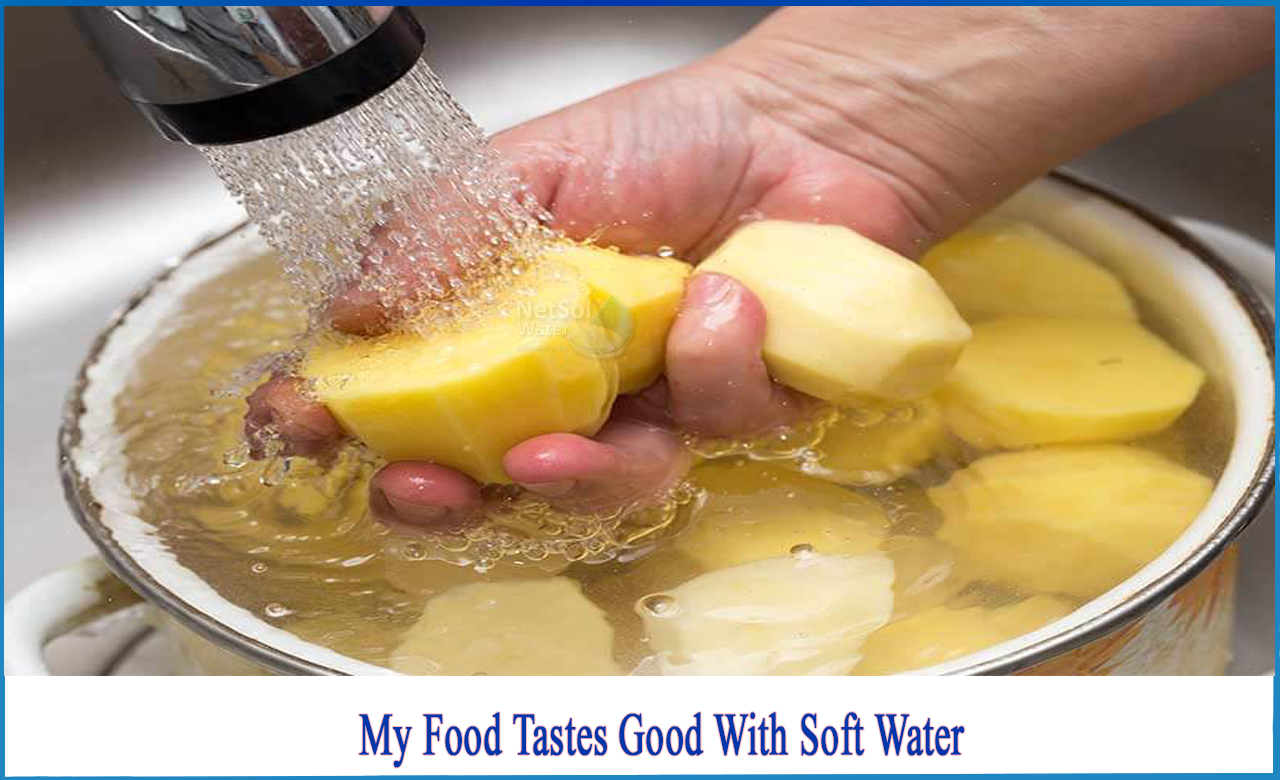Regardless of how carefully you follow a recipe, the outcome can vary significantly depending on the water you use to prepare it. Water with a high calcium and magnesium content is referred to as "hard water." If your home's water contains a high concentration of these minerals, it may affect how your dishes turn out. With a water softener and filtration system that removes these hard minerals, you can easily achieve better baking and cooking with soft water, as well as higher quality water for washing your produce.
When you cook vegetables or dry foods like pasta, beans, or rice, the mineral taste of your hard water can be absorbed. The unpleasant taste of hard water is absorbed into your food and affects its flavor, rather than simply disappearing with cooking.Hard water also slows down the cooking process and makes these ingredients more difficult to cook.
When you cook with hard water, your dishes may taste bland, the dough is less likely to rise, and your cooking times may be longer. Let's take a closer look at how using soft water can help you cook better.
Does soft water affect taste of food?
When you cook with softer water, your vegetables and dry foods will not only cook faster and have a creamier texture, but they will also retain their true flavor, free of mineral taste and odor.
The Advantages of Cooking with Soft Water:
1. The flavor has improved.
Cooking with soft water helps to ensure that the taste of your food is mineral-free. Soft and pure water also aids in the preservation of flavor. For example, when making any type of dough, using too hard water can result in stiffer dough. Too soft water can result in a weaker dough. Purified water from a water softener can aid in the preparation of your dish.
2. Vegetables are better.
Another advantage of soft water is that it makes it easier to cook vegetables. We understand that eating vegetables can be difficult, but cooking them can add flavor. Use soft water to give your vegetables the best texture and vitamin content. Because it makes your vegetables tougher, hard water slows down the cooking process. The extra time required to cook the vegetables will result in them being overcooked and bland. Cooking vegetables in soft water saves time while producing better flavor and texture.
3. Liquids have a stronger flavor.
Because the lime-scale content of soft water has been reduced, beverages such as tea and coffee taste significantly better. This also has an impact on the preparation of sauces, stocks, and gravy. Flavors will be accepted more readily in soft water than in hard water. For example, if you brew iced tea with hard water, it will become cloudy as it cools. Installing a reverse osmosis filtration system removes all minerals and other impurities from the water that enters your home. Many homeowners appreciate the all-natural, pure water produced by water softeners.
Soft water also absorbs flavors better than hard water, resulting in more flavorful broth, sauce, gravy, and even beverages like coffee and tea. In fact, iced tea made with hard water will cool with a cloudy cast rather than a clear appearance. That is why, many chefs appreciate the all-natural, pure, and fresh water produced by a high-quality filtration and softener system.
Netsol Water is Greater Noida-based leading water & wastewater treatment plant manufacturer. We are industry's most demanding company based on client review and work quality. We are known as best commercial RO plant manufacturer, industrial RO plant manufacturer, sewage treatment plant manufacturer, Water Softener Plant Manufacturers and effluent treatment plant manufacturers. Apart from this 24x7 customer support is our USP. Call on +91-9650608473, or write us at enquiry@netsolwater.com for any support, inquiry or product-purchase related query.



